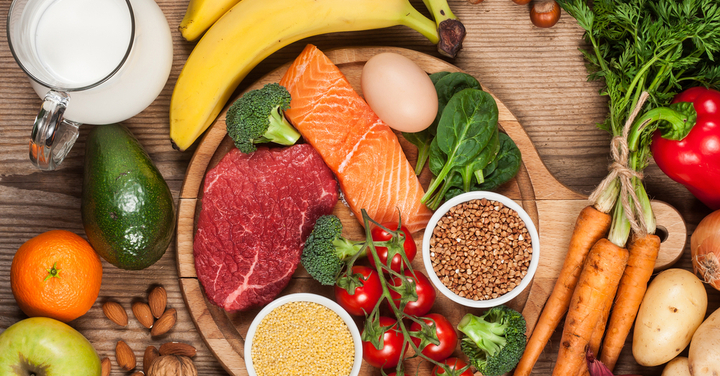Diet
We know that nutrition and the type of food you eat can make a big difference to how you feel and there are some ‘tweaks’ you can make to your diet to help manage your period symptoms.
One of the main culprits of period pain is thought to be due to an increase in inflammatory prostaglandins, hormone-like chemicals produced by the body, during your period. A growing body of evidence suggests adding certain foods or supplements to our diet might help reduce prostaglandin production and impact how long and intense period pain can be.

Supplements vs Food-based Nutrition
Researchers agree that the best way to get nutrition is from the food that we eat, but for some people, nutritional supplements can also be a helpful way to get nutrients they might be lacking. This can help some people relieve their period symptoms and we will explore this in the following sections. However, it’s important to note that supplements aren’t meant to replace food-based nutrition. If you think you need supplements, and if you are regularly taking any other medications, it’s important to talk to a doctor or health professional because sometimes they can interact in a way that’s not good for you. Also, it’s important to understand that supplements can only help if you are deficient in specific nutrients. If you are meeting your needs through the food you eat then you can save your money.
Diet and Period Pain
There are five main nutritional aspects of your diet that you can change or ‘tweak’ to see if it helps your period symptoms: b vitamins, ginger, turmeric, zinc, and omega-3’s. Out of the five options, the most well researched and effective are omega-3’s, so if you decide to do just one thing, that would be the one to try.

